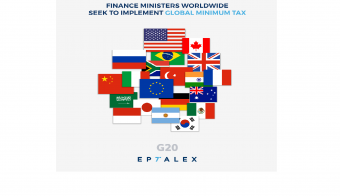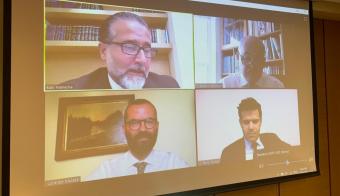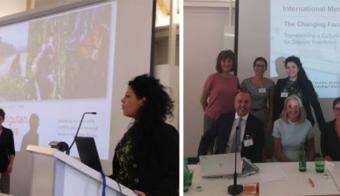On this occasion of Labor Day, we acknowledge the significant role played by workers in our societies and economies, and the ongoing fight for fair treatment, better working conditions, and labor rights across the globe.
As a law firm operating in multiple countries, including Lebanon, UAE, Saudi Arabia, and Italy, we at Eptalex recognize the unique challenges faced by workers in various industries and sectors. We are dedicated to offering legal assistance and advocacy to workers, and striving to protect their rights and entitlements under the law.
In this article, we will take a closer look at the history of Labor Day in the countries where we operate and shed light on significant labor laws and practices in these nations.
Lebanon
In Lebanon, Labor Day was first recognized in 1925. At the time, Lebanon was still under French colonial rule, and the holiday was seen as a way to commemorate the struggle for workers' rights that had taken place in France and other European countries.
Since then, Labor Day has become an important holiday in Lebanon, with workers from all industries taking to the streets to demand better wages, improved working conditions, and stronger labor laws.
The first labor law in Lebanon was passed in 1946, providing basic protections for workers in areas such as wages, working hours, and holidays. Since then, the law has been updated several times, with the most recent revision in 2017. The law now includes provisions for minimum wage, social security, and health and safety in the workplace.
However, the country has faced economic and political instability in recent years, which has led to high unemployment rates and a decline in living standards. Many workers have faced layoffs, wage cuts, and other forms of economic hardship.
In addition, there have been concerns about the working conditions of migrant workers in Lebanon, particularly domestic workers. There have been reports of exploitation, abuse, and poor living conditions for these workers.
Furthermore, the COVID-19 pandemic has exacerbated many of these challenges, with many workers losing their jobs or facing reduced hours and wages. The pandemic has also highlighted the need for stronger labor protections and social safety nets in Lebanon.
UAE
While Labor Day is not an official holiday in the UAE, many events are organized by different governmental and private entities to mark this day. These events often include speeches, cultural performances, and other activities that highlight the importance of workers to the UAE's economy and society.
In the UAE, labor laws have evolved significantly in recent years as the country has transformed into a global economic hub. The first labor law was passed in 1980, providing protections for workers in areas such as working hours, wages, and occupational health and safety. The law has been amended several times since then.
Most recently, in February 2022, a new labor law was introduced. This new law recognizes non-full-time working arrangements, safeguards employees against discrimination in the workplace, enforces the concept of equal pay for men and women performing the same work, and extends maternity leave to 60 days.
Despite various reforms, including efforts to regulate the migrant labor recruitment market and eliminate exit permit and no objection certificate requirements, critics argue that the kafala system, which links a worker's residency to their employer, still leaves workers open to exploitation and abuse.
Saudi Arabia
The labor movement in Saudi Arabia began to gain momentum in the early 1950s, with the formation of labor unions and the organization of strikes and protests calling for better wages and working conditions. The government responded by passing labor laws that provided some protections for workers, although these laws were often not enforced effectively. The first labor law was passed in 1953, providing basic protections for workers in areas such as wages, working hours, and holidays.
In pursuit of the goals of the national transformation and objectives outlined in the Kingdom's Vision 2030, the Saudi government has made significant strides in recent years to enhance labor conditions through a series of labor reforms designed to safeguard workers.
Moreover, in January 2023, the Saudi Arabian government introduced a new policy aimed at promoting equal opportunities and combating discrimination. As a result of this latest initiative, there may be potential modifications to the Labor Law that broaden protections against workplace discrimination and inequality.
Notwithstanding these measures, a significant number of workers in Saudi Arabia, particularly migrant workers, continue to encounter obstacles such as exploitation and abuse.
Italy
In Italy, Labor Day has a long and rich history. It was first celebrated on May 1st, 1891, with workers taking to the streets to demand better wages, shorter working hours, and other improvements to their working conditions. The holiday quickly gained popularity, with workers in cities across Italy organizing rallies and demonstrations each year on May 1st.
One of the first significant piece of legislation was the Law on Work Accidents of 1898, which established a system for compensating workers who were injured on the job. Since then, the law has undergone numerous revisions, including provisions for minimum wage, maternity leave, and workers' rights protection.
In recent years, Italy has experienced several changes in its labor and employment legislation. To cope with the COVID-19 pandemic, the Italian government initiated new measures in 2020. These measures included a wage subsidy program to assist companies in retaining workers, as well as new regulations regarding remote work. Furthermore, in 2022, Italy implemented the EU Directive 2019/1158 on work-life balance for parents and caregivers, with the aim of supporting workers with caregiving obligations and promoting a more equitable distribution of these responsibilities between men and women.
Nevertheless, the informal economy and high rates of unemployment persist as challenges, particularly with Italy's high youth unemployment rate, which can have long-term economic and social implications.
Conclusion
Labor laws and practices have evolved over time in Lebanon, UAE, Saudi Arabia, and Italy, reflecting changes in the economy, society, and political landscape. While progress has been made in many areas, challenges still exist in implementing and enforcing labor laws and protecting the rights of all workers.
On this Labor Day, we stand in solidarity with workers everywhere, and we recommit ourselves to the fight for a more just and equitable world. Together, we can continue to make progress towards a future where all workers are treated with the respect and dignity they deserve.



















